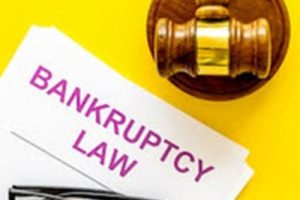Do You Have To Pay A Mortgage After Bankruptcy?

If homeowners want to stay in their homes, bankruptcy doesn’t end the obligation to pay a mortgage. Although bankruptcy makes it harder to foreclose on home loans, if debtors stop paying secured debts, the creditor seizes the collateral, bankruptcy or no bankruptcy. Paying these bills every month isn’t easy. Additionally, these record- high costs may remain high for many months to come.
Bankruptcy doesn’t end mortgage obligations, but it helps. This federal debt relief program doesn’t just protect your home in the short term, It also makes it easier to afford your home in the long term. Only an experienced Chicago bankruptcy lawyer can unlock some advanced bankruptcy features which, in many cases, could save your family thousands of dollars a year. A partnership with a lawyer has other benefits as well. For example, only an attorney can give you solid legal advice throughout the entire bankruptcy process.
Short-Term Protection
The moment debtors file their voluntary petitions, the Automatic Stay usually takes full effect. Section 362 of the Bankruptcy Code prohibits creditor adverse actions, such as:
- Foreclosure,
- Repossession,
- Creditor harassment,
- Wage garnishment, and
- Eviction.
The foreclosure protection is especially important in the Prairie State. Illinois is a non-judicial foreclosure state. Therefore, banks don’t need court orders to cast people out of their homes. Bankruptcy is usually the only way these homeowners can have their day in court.
Once the Automatic Stay takes effect, banks must obtain special permission from the bankruptcy judge to foreclose on loans. Usually, judges only grant such permission if the owner threatens the collateral (e.g. I’m going to burn the house down). Usually, the amount of delinquency is irrelevant.
Many homeowners who are in foreclosure are more than six payments behind. Chapter 13 gives these debtors up to five years to gradually erase this delinquency, using an income-based repayment plan. The terms available in bankruptcy are usually infinitely better than the terms a bank offers.
Long-Term Affordability
Many people fell behind on their payments because of issues with the original loan. Frequently, people like brokers and loan officers sugar-coat the facts, or even outright lie about them, to induce homeowners to sign on the dotted line.
Outside bankruptcy, these issues are difficult to resolve without filing an expensive and risky lawsuit. Inside bankruptcy, most judges refer these matters to mediation. During mediation, a bank has a legal obligation to negotiate with a Chicago bankruptcy lawyer in good faith. This responsibility means the bank must be willing to compromise, perhaps by forgiving part of the loan, to reach a deal.
Other protections are available as well, especially in Chapter 13 bankruptcy. Lien stripping is a good example.
Assume Ramona used an 80/20 mortgage to buy her $500,000 home. If her home’s value has declined, the value might not be high enough to secure the senior and junior mortgage. If that’s the case, the judge could declare that part of Ramona’s mortgage is an unsecured and dischargeable debt. So, Ramona wouldn’t have to pay the entire amount.
Reach Out to a Compassionate Cook County Lawyers
No matter what kind of financial problem you are having, bankruptcy could be a way out. For a free consultation with an experienced bankruptcy attorney in Chicago, contact the Bentz Holguin Law Firm, LLC. Virtual, home, and after-hours visits are available.
Source:
foxillinois.com/news/nation-world/economists-warn-housing-costs-will-remain-high-in-effort-to-tame-inflation-home-prices-interest-rate-hikes-federal-reserve-president-joe-biden-mortgage-rates-rent-increasing


